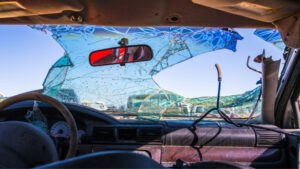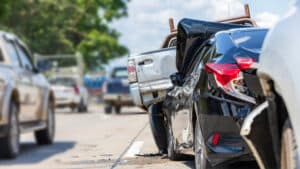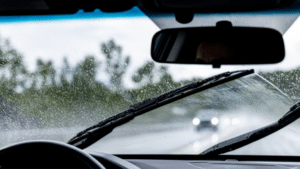
During special times we often hire limousines to carry our loved ones and ourselves to and from memorable events. As we are planning for a prom, a wedding, or an enjoyable night on the town, we are thinking about looking good, getting there on time, and riding in style.
We are being responsible by having a designated driver. We expect that the limousine company will provide safe, well maintained vehicles and professionally trained, safety conscious drivers. We believe that limousines are large sturdy cars and that limousine drivers are specially trained and specially licensed professionals. The government would not let them be on the road if they were not safe, would it?
The Dolan Law Firm has represented a number of people who have been injured in limousine accidents. Recently we successfully represented a young man who was severely injured when a limousine driver parked haphazardly on a busy street and caused our client’s hand to become stuck between the limousine door and a passing bus.
Instead of looking out for the safety of his patrons, the driver was sitting in the driver’s seat not paying attention to the vehicles around him or to his passengers who were getting back into the limousine.
The limousine driver and his insurance company claimed that our inebriated client was responsible for the accident that mangled his hand. We are proud to have helped a special young man begin the long road to repairing his life.
Surprising to most people, the limited regulations that govern limousines and limousine operators are counterintuitive and ineffective in preventing fatalities and life altering injuries.
Limousines that carry eight (8) or fewer people, including the driver, are only subject to minimal governmental regulations. Drivers of these lower capacity limousines are not even required to have a commercial driver’s license. If someone wants to start a limousine company in California, all he or she needs to do is buy a limousine, have a regular Class C driver’s license, and register with the California Public Utilities Commission (PUC). He or she does not have to have any training or experience driving limousines.
Registration with the PUC and obtaining the operator’s number we see printed on limousine bumpers are also simple. The PUC basically just confirms that the limousine has at least the minimum amount of liability insurance coverage and that the business has worker’s compensation insurance to cover its employees.
There are no particular safety regulations that apply to these limousine operators, even though tragedies involving limousines can harm a number of people.
The way the limousines are created is also not subject to much, if any, real regulation. They bear the logos and names of name brand car manufacturers, so most people are unaware that limousines are not actually created by the big name car companies.
Standard passenger cars are “modified” to be used as limousines. Lincoln Town Cars, consumer Humvees, and Cadillacs are literally cut in half by small companies that place extensions in the middle to create the “stretch limousines” we see around town.
After the consumer cars leave the factory, their structural integrity is compromised, and they are stretched using lightweight materials, including fiberglass. The body strength of that large, safe appearing limousine can actually have been very significantly diminished.
Parts, such as fuel lines, transmissions, and electrical wiring, have also been modified and can be dangerous. Because limousines are customized, safety organizations, such as the Insurance Institute for Highway Safety, do not crash test them. Limousine manufacturing is not well regulated, and the stretched vehicles are not crash tested by the government or by independent safety organizations.
Private legal actions brought by individuals in civil courts (not criminal courts) are the only way for victims of dangerous limousines and negligent limousine companies to receive compensation for the significant losses they have suffered.
Product liability suits can be filed against car companies and the companies that stretch the limousines. Negligence suits can be won against careless limousine drivers and operators. In California, limousine companies are classified as “common carriers” – commercial enterprises transporting people for money.
The civil law that applies to injury cases involving limousines requires limousine operators to have done all that “human care, vigilance, and foresight reasonably” could have done under the circumstances to have avoided harm to the passengers.
They are receiving money to transport people, so the law expects limousine companies to purchase well built vehicles and to provide well trained personnel. Extra care is further required because limousine passengers are not required to wear seatbelts, and because riders have often been celebrating to the point of being intoxicated.
As we have unfortunately seen in the news, innocent and responsible people have been killed or severely injured in limousine accidents, collisions, and fires. Such tragedies should not happen. They may be related to insufficient maintenance or improper vehicle modifications. They may also be related to the challenges limousine drivers face with blind spots, reduced maneuverability, and other complications created by the sheer size of their vehicles. Poor training and poor responses by limousine drivers may also be factors.
Hopefully, all of your experiences in limousines are pleasurable and that you never need our help. If you have suffered serious physical injuries in a limousine, you will face a strong defense by manufacturers and large insurance companies. You will need a good, experienced, civil law firm on your side that will fight for your needs. Should you require more information on this subject, or if you need assistance because of an injury, please contact The Dolan Law Firm.










